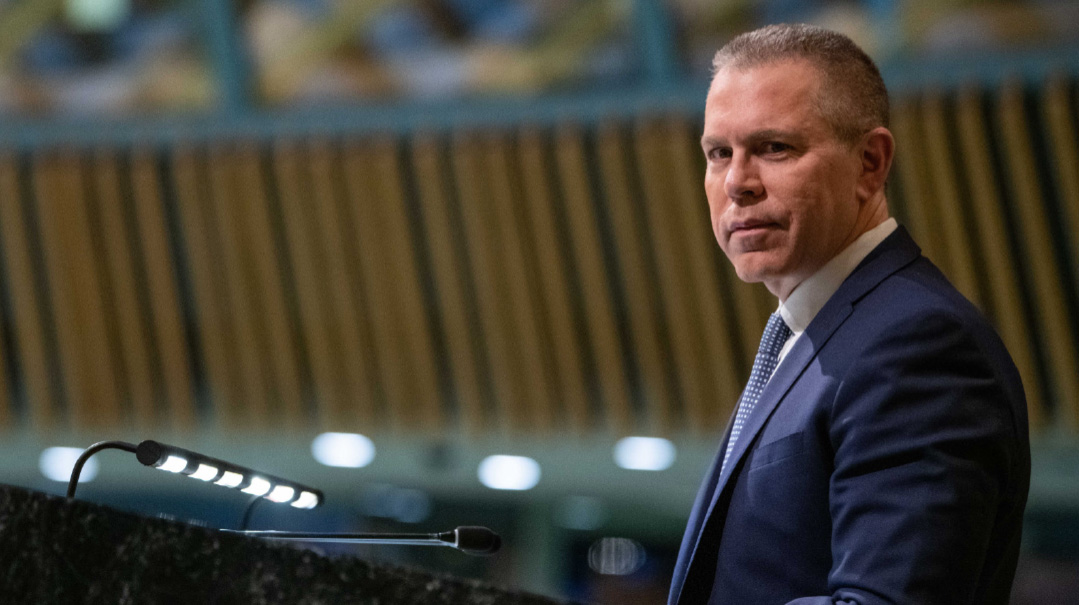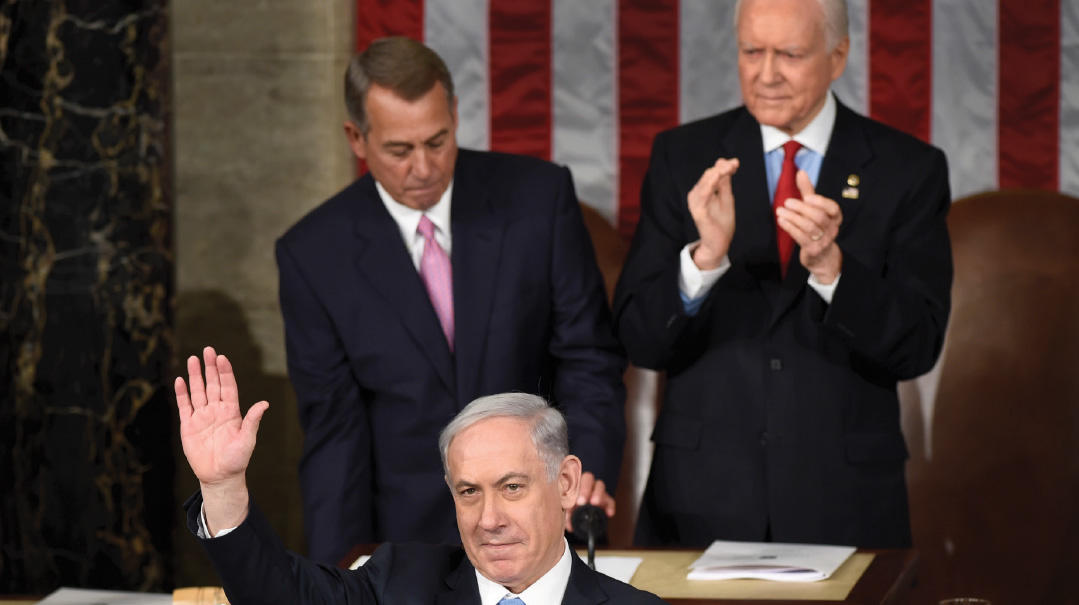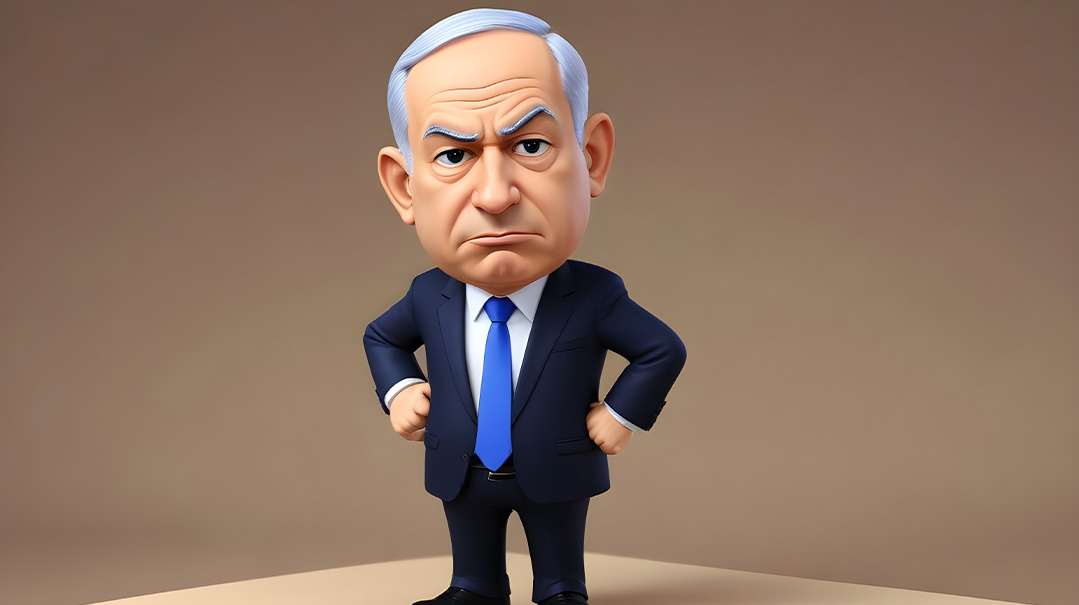Crisis on All Fronts

“I won’t hide my criticism of a vote that gave Hamas hope”

Photo: Flash90
“Wise men, be careful of your words,” Chazal admonish, and that applies to ambassadors as well. In an interview with Mishpacha in last week’s issue, Israel’s UN ambassador Gilad Erdan touted his success in preventing any anti-Israel resolutions from passing the UN Security Council since the war started on October 8.
One day after Purim, with the ink barely dry on last week’s issue: v’nahafoch hu. The Biden administration let through a UN Security Council resolution demanding a cease-fire.
In the twilight of Obama’s second term in 2016, he withheld America’s veto on an anti-Israel Security Council resolution, less than a month before president-elect Donald Trump’s inauguration. Biden, by contrast, made his dramatic decision six months before the end of his first term, at a time when Israel needs American support more than ever.
Amid the outcry, I circled back to Gilad Erdan this week. Despite his role as an ambassador, Erdan didn’t turn us away with diplomatic evasions. He was willing to directly answer the question of “mah nishtanah.” How is it that within a day of our conversation, America’s support morphed into an anti-Israel resolution?
Let’s start from the end. Do you feel that the United States has betrayed us?
“I’m deeply disappointed by the Security Council resolution, which negatively impacts both our war effort and the chances of getting the hostages back. But I don’t speak that way about an administration that has supported us all this time — and even now, President Biden still says he’s committed to Israel’s victory over Hamas.
“At the same time, we certainly don’t feel good about it, because it’s not a meaningless decision. It has real implications. We’re partners of the United States, our relationship is not one-sided, and with Israel fighting for its security and future, we expect the United States to veto any harmful Security Council resolutions, even if that goes against the president’s political interests.”
Looking forward, with the Rafah operation yet to begin and the northern front heating up, Israel finds itself in a difficult situation. With fragile American support and sweeping international condemnation, it’s hard to see a light at the end of the tunnel — both in Gaza and in Washington. Can we say that this week, Israel lost the support of the United States, at least at the UN?
“Absolutely not. This is a friendly administration headed by a pro-Israel president with a résumé of 40 years of support for Israel, in every political role he’s played, and we’ve seen this in almost every way since October 7. There are a set of considerations here that led to a wrong and damaging decision. But I hope it will stop there, because our relationship with the United States is Israel’s most important diplomatic asset, certainly in the UN, and it’s important to maintain that.”
Six months before the US elections, won’t the belligerent statements against the administration only provoke Biden to take further steps against us?
“No personal tone was taken. Our criticism of his failure to veto the resolution doesn’t diminish our appreciation for the president’s conduct so far, and I believe that we’ll continue to see him by our side down the road.
“At the same time, I won’t hide my criticism of a vote that gave Hamas hope, because Hamas is trying to exploit the UN’s flawed structure to its advantage, and this is precisely where we need our greatest friend to stand guard.
“That defensive line was broken this week — we saw how the Palestinian ambassador rushed to the press to demand concrete action, and Hamas also welcomed the decision. What incentive does Hamas have to be flexible now? It will only harden its positions, and we saw that happening just after the decision.”
Looking ahead, we’re at a low point that will make it difficult for Israel to continue operating. Our hands are effectively tied from now on.
“I wouldn’t put it that way, even though any disagreement with the Americans is always concerning, because the United States is our most important ally. We’ll continue to make our voices heard and stand up for Israel’s security interests, even in times of disagreement, and I’m confident that we’ll see the administration continuing to stand by us down the road.”
Will Chareidim Ditch the Right?
With all the threats that have hovered over Netanyahu’s sixth government since its inception, the coming days will be the most critical. When the government was established, the chareidi parties had one main task: passing legislation to secure the status of Torah learners vis-à-vis the draft. And they had to do it within the limited time frame set by the High Court for the expiration of the existing law on the draft.
Then came the judicial reform, creating a climate in which legislation couldn’t be passed. By the time chareidi politicians woke up and changed track, it was too late. Amid the longest war in the history of the State of Israel, voices are now being heard from both the left and the right calling for the end of the draft exemption granted by Ben-Gurion to Torah learners.
And last Thursday, the High Court stepped into the vacuum. It began with the attorney general’s opinion that the state must begin preparing to draft yeshivah students and revoke funding for Torah learners in the near future. The decision shocked Netanyahu and chareidi politicians, but before they could recover, the High Court of Justice ruled last Thursday that the government must cut off funding for yeshivos effective April 1.
The dilemma now facing chareidi political representatives is difficult. On the one hand, as two senior officials in both Shas and Agudas Yisrael told me, the chareidi parties can’t prop up a government that outlaws Torah learning. On the other hand, toppling the government at this moment would only reward the High Court, leading to elections that would return the left to power.
“We’re stuck in the conceptual framework of the past,” one senior chareidi politician told me. “If the government falls and Gantz heads the largest party, as the polls indicate, he’ll be interested in forming a government with the chareidim, the most stable partners. As it is, we take all the left’s fire because of Netanyahu. The draft has become an insoluble problem because of Netanyahu, not us. And so, gedolei haTorah will have to decide whether the time is ripe to break the alliance we’ve maintained with the right since the first Begin government in 1977.”
I asked the senior chareidi politician (to be precise: very senior) what advice he would give gedolei haTorah if they ask for it. “If they ask me,” he said, “I’ll explain that the chareidi interest today is to go to elections, after which we’ll join the candidate with the best chances of forming a government that can regulate the status of Torah learners, without regard to their position on the political spectrum.”
With the eternal promise “ki lo tishakach mipi zaro [it will not be forgotten from the mouth of his offspring],” it’s quite possible that the coming days will herald the end of the right’s decades-long hold on power.
(Originally featured in Mishpacha, Issue 1006)
Oops! We could not locate your form.







